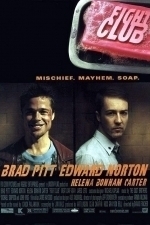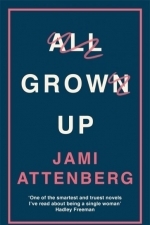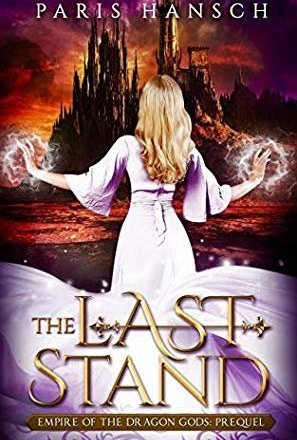
The Last Stand (Empire of the Dragon Gods: Prequel)
Book
A priestess, a dragon god - and a lie that threatens to destroy them all. Celia is about to break...
Young Adult Fantasy

Skin and Bones (London Love #3)
Book
Hugo Burrows has life under control. He has a decent job, a long-term relationship and a flat in...
Contemporary MM Romance Hurt/Comfort Grumpy/Sunshine Eating Disorder
DaveySmithy (107 KP) rated Fight Club (1999) in Movies
Dec 3, 2024
The story is told through the eyes of the unnamed narrator (Norton), a white-collar worker trapped in a monotonous life. Crippled by insomnia and a desperate longing for purpose, his mundane existence takes a dramatic turn when he crosses paths with Tyler Durden (Pitt), a magnetic, anarchic soap maker. Together, they form the titular fight club—a raw, underground outlet for men to vent their frustrations by literally beating them out of each other. What begins as an unconventional form of therapy soon spirals into a chaotic and dangerous movement, leading the narrator down a path of self-destruction and shocking revelations.
Edward Norton delivers a career-best performance as the narrator, capturing the character’s descent into madness with unnerving precision. His dry wit and self-deprecating humor make him relatable, even as his actions become increasingly unhinged. But it’s Brad Pitt who truly steals the show as Tyler Durden. Charismatic, unpredictable, and dripping with swagger, Pitt embodies the fantasy of rebellion and freedom that so many viewers secretly crave. Together, the two actors create a mesmerizing dynamic, with Tyler representing everything the narrator wants to be—and fears he might become.
Helena Bonham Carter rounds out the core cast as Marla Singer, a nihilistic wildcard who both disrupts and grounds the narrator’s chaotic journey. Her chemistry with Norton is as compelling as it is unconventional, adding a layer of emotional complexity to an otherwise hyper-masculine narrative.
What sets Fight Club apart is its fearless critique of modern society. It skewers consumerism, masculinity, and the emptiness of the so-called “American Dream,” forcing viewers to confront uncomfortable truths about their own lives. Fincher’s direction is sharp and unrelenting, with the film’s gritty visual style perfectly complementing its nihilistic tone. The innovative use of CGI, fourth-wall-breaking moments, and hauntingly effective cinematography by Jeff Cronenweth keep the audience on edge, unsure of what to expect next.
Yet, Fight Club is not without flaws. Its provocative themes can feel overly blunt at times, and some viewers might find its violent and anarchistic undertones alienating. Additionally, while the infamous plot twist is masterfully executed, it risks overshadowing the film’s deeper messages upon rewatch.
The soundtrack, anchored by The Dust Brothers’ industrial score and the unforgettable use of The Pixies’ “Where Is My Mind?” in the climax, elevates the film to iconic status. These elements, combined with razor-sharp dialogue and endlessly quotable lines, solidify Fight Club as a masterpiece of late-90s cinema.
While it may not be for everyone, Fight Club is a bold, daring, and unforgettable experience that challenges societal norms and forces introspection. It’s an audacious 9/10 film—flawed but brilliant, much like the chaos it portrays.
Suswatibasu (1703 KP) rated All Grown Up in Books
Jan 3, 2018 (Updated Jan 3, 2018)
Her life is spread eagled across the pages for the reader to pick over. Each chapter is a snapshot of an episode in her life, whether it is looking back over some of her chaotic childhood years - Dad was a drug user who died too early; Mum, once on her own again, runs bi-monthly dinner parties in the 1990s attended by only men, who of course try and hit on Andrea, a teenager at the time; or whether it is an examination of her relationships with her friends, lovers and acquaintances who pass through her life now.
Andrea also has a brother who in turn has a daughter, only tiny, who was born with a congenital problem and her life expectancy is only around four years. Yet, our self absorbed protagonist does not really visit to offer support because she is so wrapped up in her own world. She simply does not have the mental capacity and resources to give to her brother and little niece.
This is an interesting read, on-point in many ways – it smacks of New York and of lives lived in the city, Freudian Angst, neuroses and all the shtick of metropolitan Manhattan. At times, it did feel a little cliched but may be we all repeat the same patterns?

What Planet am I on?
Book
'I think anyone who doesn't believe there is life out there will eventually end up looking as...
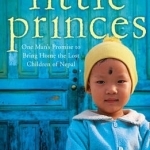
Little Princes: One Man's Promise to Bring Home the Lost Children of Nepal
Book
The riveting story of Conor Grennan's year in Nepal reads like a cross between Into Thin Air and...
Raymond Pettibon: Surfers 1985-2015
Carlo McCormick and Adam Lindemann
Book
Limning a dizzying array of topics with his distinctive combinations of image and text, Raymond...

Tata Dada: The Real Life and Celestial Adventures of Tristan Tzara
Book
Tristan Tzara, one of the most important figures in the twentieth century's most famous avant-garde...
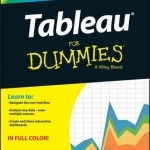
Tableau For Dummies
Book
Make your data work for you! Tableau For Dummies brings order to the chaotic world of data....
The Vanke Way: Lessons on Driving Turbulent Change from a Global Real Estate Giant
Book
The leadership secrets of the man who built a real estate empire in early modern China. "I believe...
